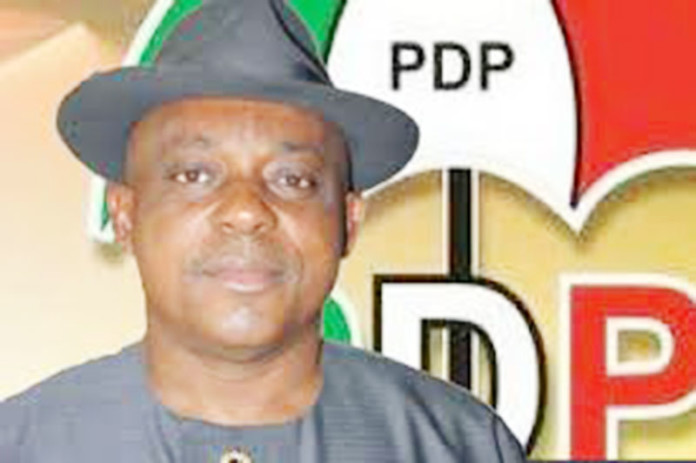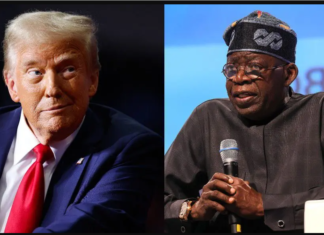By Emeka Alex Duru
On February 6, 2012, the then Action Congress of Nigeria (ACN), All Nigeria Peoples Party (ANPP), Congress for Progressive Change (CPC) and fragments of All Progressives Grand Alliance (APGA), had taken bold steps in a move that eventually led to the emergence of the All Progressives Congress, the current ruling political party at the centre.
In making the move, the organisations which were in opposition, had accused the Peoples Democratic Party (PDP), then, the ruling party, of setting the country’s wheel of progress, back, hence the need for change.
Realising the challenge and limitations of embarking on the move individually, they went into a coalition that eventually saw them sweeping off the PDP in the 2015 general elections – the first time an opposition political party would be defeating the incumbent in the country’s electoral history.
Five years after that bold move and seven months to the 2019 polls, the tables have turned and the roles are changing.
In place of the PDP that other political parties perceived as the behemoth that needed to be changed, is the APC. And the PDP, is ironically leading the change orchestra.
The agenda, which had been a subject of intense speculation lately, was officially unfolded on Monday, July 9, when the PDP signed a Memorandum of Understanding (MOU) with 38 others in a political alliance under the aegis of Coalition of Unity Political Parties (CUPP).
The pact would facilitate the emergence of a common presidential candidate in next year’s general elections.
The parties also agreed to present unity candidates for governorship positions in the 36 states. The alignment is expected to result in a government of national unity.
The parties in the coalition included Action Alliance (AA), Alliance for Democracy (AD), Africa Democratic Party (ADC), Action Democratic Party (ADP), Democratic Alternative (DA), Democratic Peoples Party (DPC), National Conscience Party (NCP), New Generation Party (NGP), People for Democratic Change (PDC), Peoples Democratic Party (PDP), Providence People’s Congress (PPC), and the Reformed All Progressives Congress (R-APC).
The chairmen of the parties took turns to speak at the occasion, condemn the APC administration for the hardship and poor governance culture in the land.
They also accused President Muhammadu Buhari of being nepotistic and failing woefully in managing the growing climate of insecurity in the country.
Coming on the heels of the exit of the R-APC from the APC last week, the action is seen by analysts, as indicating the commencement of activities towards 2019 politics.
Riding on perceived APC lapses
R-APC, led by Buba Galadima, erstwhile Buhari loyalist, had announced its exit from the APC, on Wednesday, July 4, citing absence of internal democracy, leadership inertia and total departure from the ideals of the party by its leaders at various levels.
Galadima, who articulated the grievances of the group, remarked; “The APC has failed to deliver on its key promises to the nation. There is no evidence of any political will to reverse the decline of our party, while leaders who have created these circumstances continue to behave as if Nigerians owe our party votes as a matter of right”.
The statement further alleged that the APC government, has been a monumental disaster, even worse than the government it replaced.
That was seen in some quarters as the first step on the onslaught at the party. For PDP which has not hidden its desire to return to power since its crushing defeat by the APC in 2015, it was an opportunity to embrace the group and restrategise in moving against the ruling party.
How far can the CUPP go?
The question concerned minds have asked since the meeting of the coalition, is how far it can go in dislodging the APC within the remaining seven months to the poll. Some, particularly in the South, who are obviously miffed at the style of the APC in governing the country, argue that the brains behind the organisation and their profile, will go a long way in attracting national recognition for it.
Nnanna Ezeocha, a lawyer, for instance, dismissed the factor of time working against the coalition. In his words, “the timing is not late, nor abrupt. The important thing is the message which Nigerians want to hear. We have suffered in the last three years under Buhari and his gang. I can assure you that Nigerians will jump to the coalition as long as its programmes offer them an escape route from the present punishment they are experiencing under APC”.
His colleague, Jiti Ogunye, who spoke on Channels Television, Lagos, agreed that the remaining period to the election, is enough for the group to be formalized as a political party. He had however wished that a coalition of new breed politicians would have been a better alternative to the CUPP and APC.
Former Kaduna State governor, Balarabe Musa, on his own, flatly dismissed chieftains of CUPP as opportunists desperately seeking avenues to come to power next year.
CUPP and the task ahead
The challenge many have in situating the CUPP with the task it has assumed for itself, is that, so far, PDP is the only weighty organisation in its fold. None of the other political parties in the coalition, has a state under its platform.
This is what is seen as a marked departure between the new move and what happened in 2013 when the so-called new Peoples Democratic Party (nPDP), a break-away group that left the then ruling PDP few months to the 2015 general elections and eventually teamed up with the nascent APC to give it victory at the polls.
nPDP had left with the then governors of Sokoto (Aliyu Wamakko), Rivers (Rotimi Amaechi), Adamawa (Murtala Nyako), Kwara (Abdulfatah Ahmed) and Kano (Rabiu Kwankwaso), into the APC.
In the current exercise, no state governor has sent indication of joining the group.
There is also the issue of the parties in the coalition agreeing on a joint candidate in 2019. The argument is that given the near desperation by some of those behind the coalition for a bigger platform to actualise their political ambition, the fear is that none may readily yield ground for the other to emerge.
This is especially as the coalition is currently not identified with any strong figure that can serve as a clearing ground for the divergent interests.
This, perhaps, informs the boast by the APC national chairman, Adams Oshiomhole, that the party is not losing sleep over the coalition. The CUPP is however confident of pulling the rug off the feet of the APC.
Evolution of coalition politics
If the emerging coalition succeeds in dislodging APC next year, that would mark the second time the opposition would be beating a ruling party in national election. The first was the APC victory over PDP in 2015.
Before then, the opposition had always started on a strong note, ending up however, without achieving much remarkably.
During the First Republic for instance, a working arrangement between the then Northern Peoples Congress (NPC) and the National Council of Nigeria and Cameroon, NCNC, saw the Action Group (AG) playing the role of opposition. The tenacity of the AG in checking the perceived excesses of the NPC/NCNC coalition was said to have ensured that the principles of checks and balances were observed by the authorities of the time.
Second Republic democracy did not explicitly create room for opposition politics. However, in the first leg of the dispensation (1979-1983), following a coalition between the National Party of Nigeria (NPN) and the Nigerian Peoples Party (NPP), the Unity Party of Nigeria, (UPN) with tacit backing of the PRP and Great Nigeria Peoples Party, GNPP, unofficially acted as opposition parties.
By 1983 however, the NPN/NPP working arrangement had hit the rocks, forcing the NPP to join ranks with the other parties to form the Progressives Grand Alliance that acted as the fulcrum of the opposition.
Despite the hopes raised by this alliance, the inability of the individual leaders of the party to forgo their ambition in favour of a common candidate, created room for the NPN to ride rough shod on the nation in the highly flawed 1983 general elections.
In the current dispensation, previous attempts by the Conference of Nigerian Political Parties (CNPP) to form a broad coalition to stop PDP had always faltered when it mattered most.
The jinx was however broken in the arrangement and understanding that gave rise to the APC. Whether CUPP will replicate the feat, remains to be seen.













